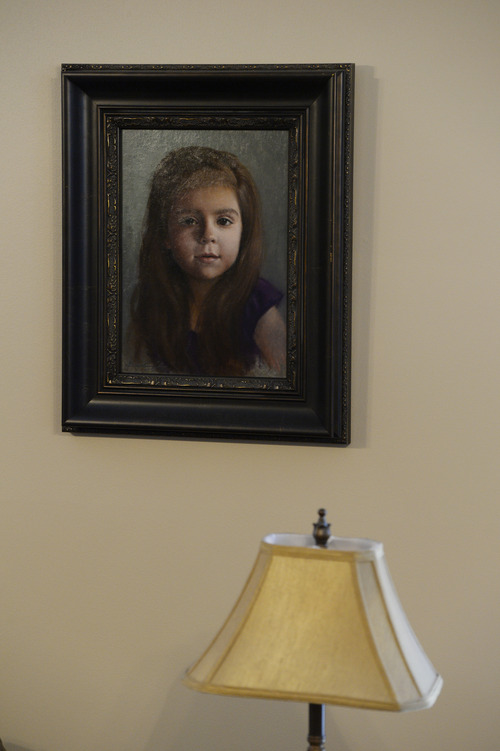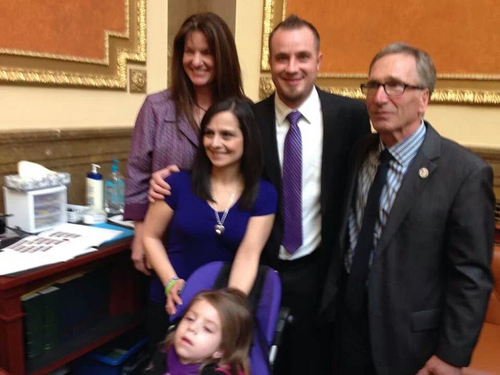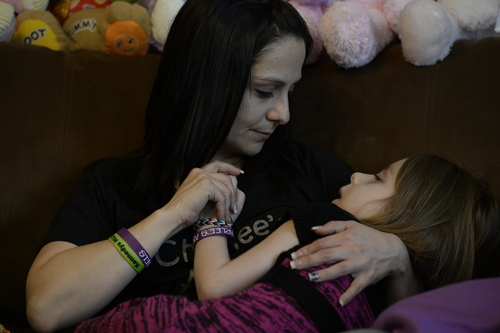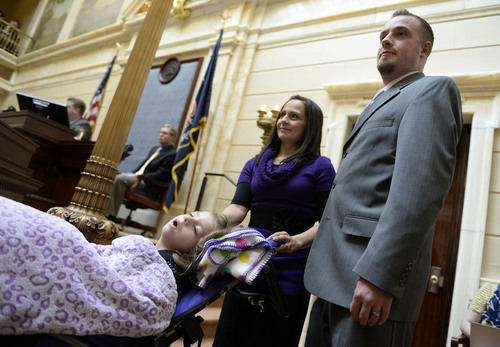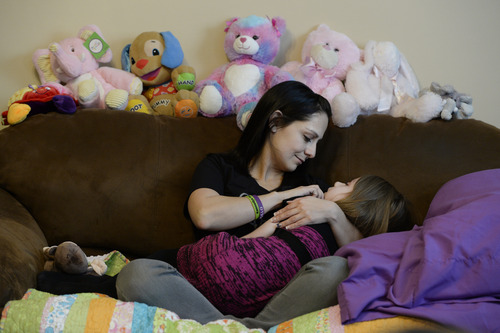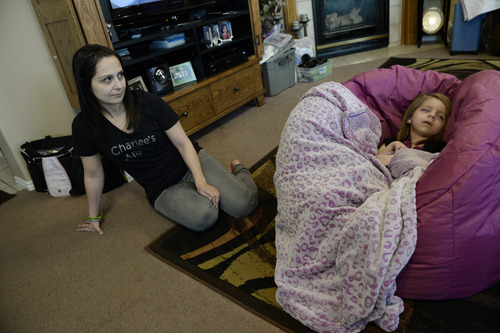This is an archived article that was published on sltrib.com in 2014, and information in the article may be outdated. It is provided only for personal research purposes and may not be reprinted.
Utah Gov. Gary Herbert signed "Charlee's Law" on Thursday, giving Utahns with epilepsy trial access to a non-intoxicating, seizure-stopping cannabis oil.
The Republican signed HB105 in a private ceremony with the parents of the bill's namesake, Charlee Nelson, one of 50 Utah children on a Colorado waiting list for nonintoxicating cannabis oil. The 6-year-old West Jordan girl, died last weekend, days after being honored by the Legislature.
Herbert will hold a "ceremonial" signing next Tuesday at the Capitol.
"Cannabis oils show promise of offering some relief to Utahns suffering from seizures and epilepsy and we should do all we can to help them," he said in a statement Friday. "My concern has been that the products are produced properly and that we have the adequate protections in place. Ultimately, I am satisfied the bill provides for that and I decided to sign it. "
Parents who pushed for Charlee's Law are relieved to have overcome this final legislative hurdle, but stress the bill doesn't take effect until July 1.
"We're still working through the details of how all this will work," said Jennifer May. co-founder of Hope 4 Children With Epilepsy (H4CE).
The Utah Department of Health has to create a process for families to apply for a waiver to use cannabis oil.
"We know for certain that the registration process, issuance of registration cards, and maintenance of the medical records will be housed in the Office of Vital Records and Statistics. We still have to write rules for the registration requirements, the physician statement form for the individual or the minor in their care, needed documentation of the registrant, etc.," said health department spokesman, Tom Hudachko.
Hospitals must also develop procedures for dispensing the written recommendations required from board-certified neurologists to apply for a waiver.
"If you call your neurologist today, the nurse probably won't know what to do or say," May said.
Then there's the matter of obtaining the oil, which must be certified by a lab to contain at least 15 percent cannabidiol (CBD), the chemical believed to have anti-seizure properties, and less than 0.3 percent of tetrahydrocannabinol, or THC, the psychoactive chemical that gives marijuana users a high.
Oils purporting to be high in CBD can be purchased online, sometimes for thousands of dollars per vial. But May said the products aren't always "as advertised," and "part of our challenge will be to help educate" consumers.
Many H4CE parents are on a 3,500-person waiting list for a CBD oil produced by the Realm of Caring Foundation in Colorado Springs.
The Realm hopes to furnish oil to everyone on the list with the next harvest, said one of the foundation's owners, Joel Stanley.
"In anticipation and in good faith with the Utah moms who have been on our waiting list, we are ramping up our production and hope to have a crop ready before fall," Stanley said.
The Realm hopes to grow that crop under a hemp license, which would enable it to ship products to Utah. But some Utah families may come off the waiting list in the spring, and because that product was grown under the Realm's medical marijuana license, families may have to go to Colorado and import it themselves, Stanley said.
Additionally, they'll have to jump through all Colorado's hoops to obtain a medical marijuana card.
The formulation of the Realm's CBD oil –– alternatively known as Charlotte's Web or Alepsia –– hasn't changed, Stanley explained. But legal landscape is evolving rapidly.
The Realm also hopes to research its oil with doctors at the University of Utah.
"This bill is really about research and education," said Laura Warburton, a political consultant to the families.


